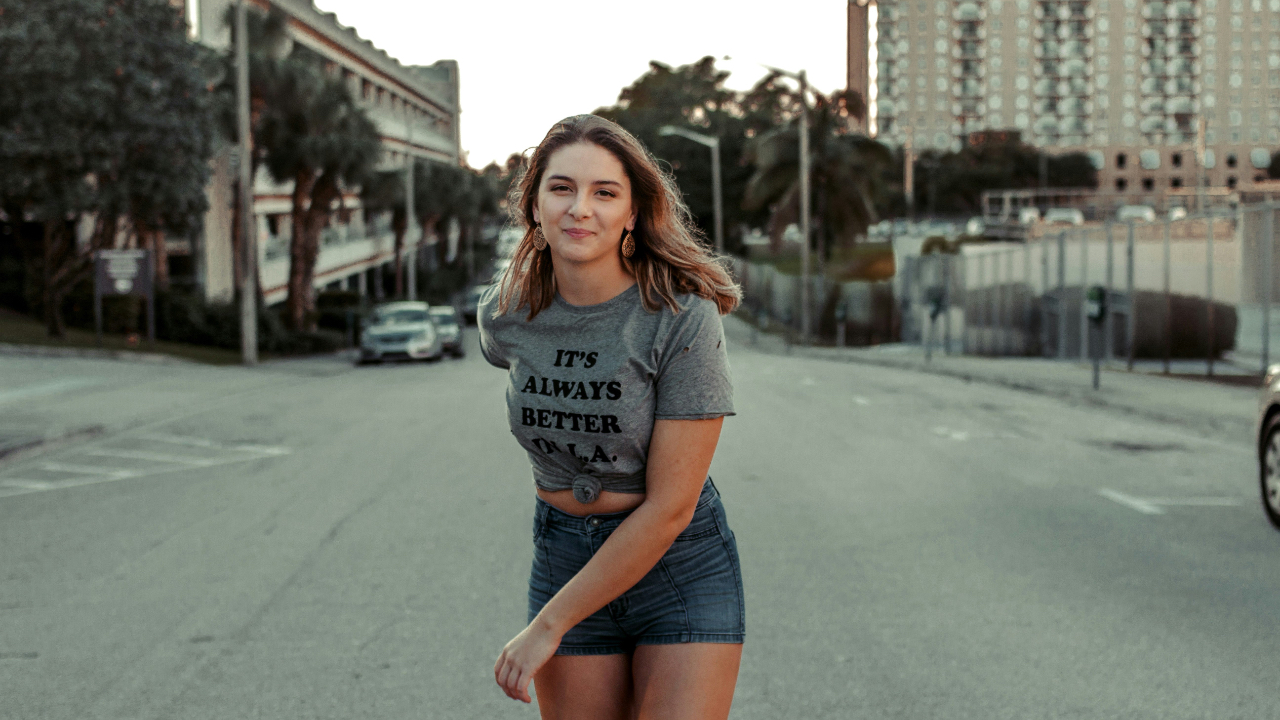Why Does Taking Off Your Clothes Feel Like Power to so Many Young Women?
Aug 03, 2025
Let’s talk about it.
My 7-year-old daughter just picked out a bunch of crop tops for back-to-school. I asked her why—genuinely curious.
She paused, thoughtful, and said, “I just feel kinda powerful in them.”
I didn’t shame her. I didn’t scold her.
We talked. Gently. I asked what she meant by power.
She wasn’t sure. It was more of a feeling than a knowing.
And that’s exactly the point.
From such a young age, girls are absorbing subtle messages about what makes them worthy, magnetic, desirable.
We don’t even have to say it outright. The world shows them.
And social media?
It teaches it relentlessly.
It teaches girls and women that power is found in being wanted.
That visibility is value.
That desirability equals dominance.
That attention = impact = empowerment.
We open the app and see it everywhere: women looking stunning, confident, captivating—often half-dressed, perfectly lit, with thousands of likes, followers, brand deals.
To a young woman watching, this sends a very clear message:
Power comes from being desirable.
And you know what?
There is a kind of power in that.
There’s power in visibility.
There’s power in magnetism.
There’s power in social capital.
We can’t deny that people who fit beauty norms, who show skin, who command attention—get rewarded.
They’re seen as influential.
They get the brand deals.
They become “aspirational.”
But what kind of power is it? And what does it cost?
Because not all power is the same.
There’s power that’s rooted in self—quiet, grounded, and steady.
And then there’s power that’s borrowed—fragile, conditional, and performative.
The kind of power we gain from being seen often feels intoxicating.
It gives us a hit of significance.
A momentary relief from invisibility.
It might open doors, spark attention, even shift how others treat us.
And we can't deny the truth:
There are real forms of social capital that come with revealing your body in this culture.
Influence, status, money, engagement, perception.
Some women have leveraged it strategically, even artfully.
So it’s not as simple as good or bad, empowered or oppressed.
But when that power relies on how we’re perceived—how desirable, curated, or clickable we appear—then it’s not actually ours.
It can be taken away. It is FRAGILE.
It changes as we age.
It fluctuates with trends, platforms, body types, and filters.
The cost?
We start living in reaction.
Curating ourselves instead of knowing ourselves.
Scanning for feedback instead of anchoring in truth.
We invest hours into aesthetics and seconds into self-reflection.
We lose touch with our own inner power—our voice, our values, our boundaries, our knowing.
Sometimes we stop asking what we even want—because we’re so attuned to what gets rewarded.
And let’s be honest:
The system is built to reinforce this.
It tells women that youth, beauty, and sexual desirability are our highest currency.
So even when we know it’s a game, we still feel like we have to play.
This is the subtle trauma of social conditioning:
It doesn't force us to comply. It convinces us we want to.
That’s why the real question isn’t “Is this empowering?”
It’s:
“Is this mine?”
Is this power rooted in my truth or someone else’s validation?
Is it sustainable or is it slowly hollowing me out?
True power isn’t loud.
It doesn’t depend on likes or visibility.
It lives in how deeply you belong to yourself—no performance necessary.
So when your daughter picks the crop top or your inner teenager wants to post the thirst trap, or you find yourself chasing that dopamine hit of being seen—pause. Not to judge. But to ask:
Whose attention am I seeking?
And what is the attention really giving me?
That’s the beginning of something deeper than performance.
That’s the beginning of power that no one can take.
Here’s what I’d say to my daughter today...
And what I might say to the younger version of you, too:
It’s okay to enjoy feeling beautiful.
It’s okay to love your body.
It’s okay to express yourself however you choose.
But I want you to be aware.
I want you to notice what’s underneath your choices.
And I want you to be so deeply connected to your own essence that you never forget:
Your power is not something to win. It’s something to remember.
So if you’re in this loop or raising a daughter who is…
Ask yourself:
-
Where did I learn that being looked at equals being powerful?
-
What am I hoping to feel when I’m visible?
-
Do I know how to feel powerful without external validation?
-
What would shift if I didn’t need my body to speak for me?
There is no shame in wanting to be seen.
But we get to ask why.
We get to decide what we’re modeling for the next generation.
And we get to return to the kind of power that doesn’t vanish when the attention fades.
That power is quieter.
But it’s deeper.
And it’s yours.



